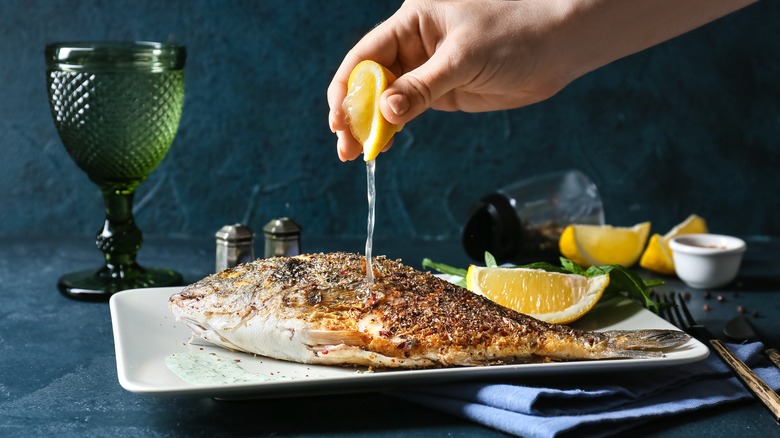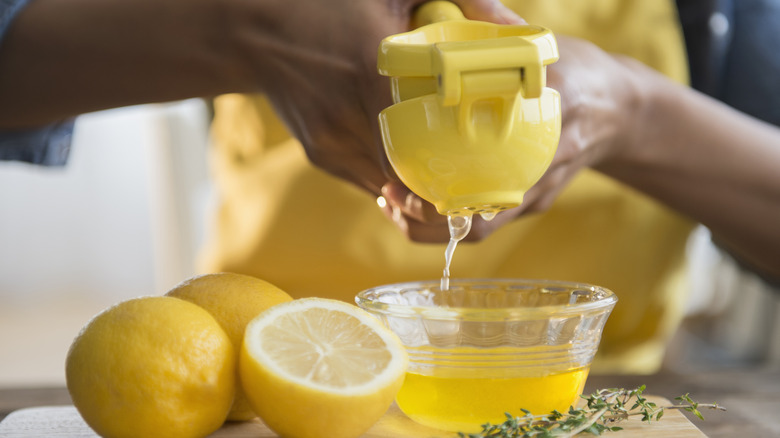Why You Should Think Twice Before Squeezing Lemon Juice On Hot Food
Just like their fellow citrus fruits, lemons are incredibly good for you for a multitude of reasons. They can reduce the risk of cancer, improve your digestion, and are even said to help with weight loss. Perhaps most notably, they're super rich in vitamin C, meaning that they can be the sour-but-effective punch your immune system needs during cold and flu season. Of course, they taste really good, too. A little squeeze of acidity helps balance out other flavors that are present in your recipes. However, there's one important tip to remember when cooking with lemons: Think twice about squeezing the juice onto hot food, as heat will destroy the vitamin C that lies within, eliminating that immune system boost.
Interestingly enough, the nutrient makeup of many foods is altered during the cooking process. This is especially true for vitamin C, which is a water-soluble and temperature-sensitive vitamin. It dissolves easily in water — especially when that water is hot — and it can be degraded by elevated temperatures as low as 85 degrees Fahrenheit. Therefore, if you're looking to consume more vitamin C in the form of lemons, you'll want to make sure that your food cools down before adding a bit of citrusy sunshine to it.
The best ways to add lemon to your recipes
Just because you should wait until your food is cool to add this tangy citrus doesn't mean you should avoid adding lemon altogether. There are plenty of dishes that call for lemon for a flavor boost instead of extra salt. You probably already add salt to taste to many of your favorite recipes, so what's stopping you from adding lemon to taste, too? One simple way to dip your toes into cooking with it is by adding it to your favorite vegetables after they've been sauteed or roasted. Try squeezing a slice or two over some simple roasted asparagus or sauteed spinach.
Beyond the typical addition of lemon to cooked vegetables, a squeeze of the mineral-packed citrus also does wonders when added to other types of food, like a curry or a pilaf. A bit of citrus cuts through your curry's richness like a zesty knife, adding a major pop of flavor that you won't get with a modest pinch of salt. Lime is commonly used in curry dishes, but don't be afraid to use lemon instead to switch it up a bit. Squeeze some to taste over a veggie-packed Japanese curry for a vibrant explosion of flavors, and serve a slice or two on the side of a lemon rice pilaf to obtain a flavor of your liking. No matter how much you add, your taste buds and your immune system will thank you.

